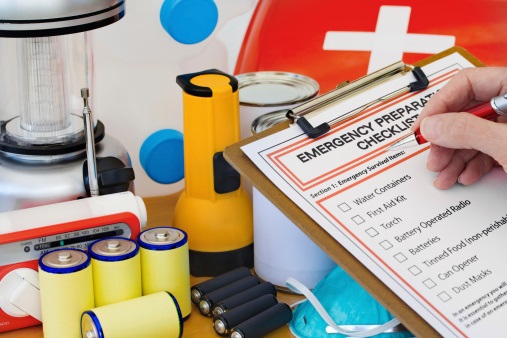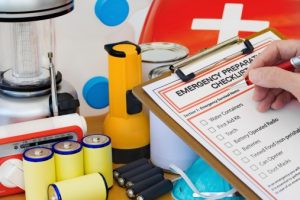Emergency Preparedness: Zombie Apocalypse

“There are all kinds of emergencies out there that we can prepare for. Take a zombie apocalypse for example. That’s right, I said z-o-m-b-i-e a-p-o-c-a-l-y-p-s-e. You may laugh now, but when it happens you’ll be happy you read this, and hey, maybe you’ll even learn a thing or two about how to prepare for a real emergency.” – Quote from the CDC’s blog

The Centers for Disease Control and Prevention (CDC) has creatively used the pop culture phenomenon of a “Zombie Apocalypse” to highlight the importance of preparing for a variety of emergencies/natural disasters. After all, if you’re prepared for a zombie invasion, you’re prepared for just about anything! When most people think of emergency preparedness, they think of kits or bunkers that store food, water, and supplies. Equally important to preparing these physical supplies is ensuring that you are financially prepared for an emergency situation. With this in mind, we share three suggestions to help you and your family be prepared for any emergency, even a zombie apocalypse.
1. Put Together An Emergency Kit
- Zombies notoriously congregate around sources of sustenance and the places humans go to for supplies. You will need to stock up on these essentials to last you through the first several days until relief arrives and/or you are able to get to a safe location or evacuation center. Some of the items that should go in your kit include:
-
- Water (1 gallon per person per day)
- Food (build a supply of non-perishable items)
- Medications (stock up on over-the-counter items and/or get your prescription filled in advance)
- Tools and Supplies (matches, duct tape, batteries, utility knife, flashlight, etc.)
- Sanitation and Hygiene (soap, towels, small wash bowl)
- Clothing and Bedding (change of clothes, blankets, sleeping bags)
- First Aid Supplies (band aids, medical tape, gauze, etc.)
-
2. Come Up With An Emergency Plan
- Zombies come in droves so it is essential to have a set plan BEFORE their arrival. In the same way, once disaster strikes you should already have a plan in place for what you and your family will do.
-
- Identify the types of emergencies that could impact your area.
- Make a family communication plan for how you will connect with each other if you are not together when a disaster hits.
- Pick a meeting place for your family to regroup right outside your home and one place outside your neighborhood in case you are not able to return home right away.
- Identify your emergency contacts who can let the rest of your family know you are okay.
- Plan your evacuation route, determine your safe location, and plan out multiple routes to get there.
-
3. Prepare An Emergency Financial First Aid Kit
- Zombies of the financial variety crave your cash and valuables. Having a plan to pay your bills and access your important records and accounts will help keep you running ahead of the zombies and avoid problems with your credit when you need it most.
-
- Keep copies of your important personal and family documents including photo ID, birth certificates, marriage licenses, and social security cards.
- Record records of your financial accounts, obligations, and insurance policies to help you re-establish your finances should your regular access be disrupted.
- Establish a list of contact information for all your financial, health, and other service professionals to serve as a backup in case this information is lost during an emergency.
- Take photos or video to inventory your home possessions for insurance purposes.
- Save a small amount of cash at home in a safe place in the event that ATMs and credit cards are not operational during an emergency.
-
Once you have your kits and plans in place, it’s important to ensure they are easy to access, up-to-date, and safe from any type of damage. Keep physical supplies well-marked in an easy-to-carry container and keep items like medications and paper records in a waterproof and fireproof box. You should also set yourself a reminder to update your kits every six months to ensure your food and medications have not expired and your contacts and records have not changed. The functionality of your kit is of the utmost importance when it comes to being prepared to take on whatever zombies lay ahead.
For more information on Emergency Preparedness, we encourage you to explore the following resources:
- CDC: Zombie Preparedness Campaign
- CDC: Emergency Preparedness and You – Make a Plan
- Department of Homeland Security: Financial Preparedness
